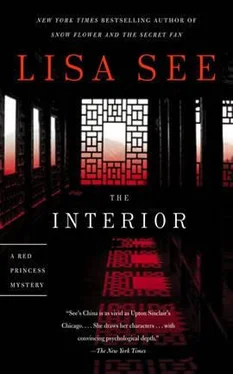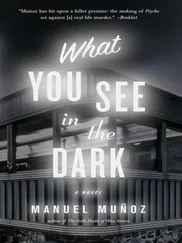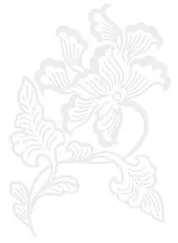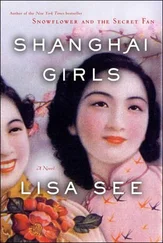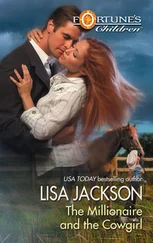Lisa See - The Interior
Здесь есть возможность читать онлайн «Lisa See - The Interior» весь текст электронной книги совершенно бесплатно (целиком полную версию без сокращений). В некоторых случаях можно слушать аудио, скачать через торрент в формате fb2 и присутствует краткое содержание. Жанр: Детектив, на английском языке. Описание произведения, (предисловие) а так же отзывы посетителей доступны на портале библиотеки ЛибКат.
- Название:The Interior
- Автор:
- Жанр:
- Год:неизвестен
- ISBN:нет данных
- Рейтинг книги:5 / 5. Голосов: 1
-
Избранное:Добавить в избранное
- Отзывы:
-
Ваша оценка:
The Interior: краткое содержание, описание и аннотация
Предлагаем к чтению аннотацию, описание, краткое содержание или предисловие (зависит от того, что написал сам автор книги «The Interior»). Если вы не нашли необходимую информацию о книге — напишите в комментариях, мы постараемся отыскать её.
In spite of David's protests, Hulan goes undercover, transforming herself from Red Princess to peasant girl, to gain entry into the Knight factory compound. Once inside, rather than finding answers to the girl's death, Hulan unearths more questions, all of which point to possible crimes committed by David's client- ranging from corruption to child labor to unsafe manufacturing practices to far worse. Suddenly Hulan and David find themselves on opposite corners: One of them is trying to expose a company and unearth a killer, while the other is ethically bound to protect his client. Their independent activities collide when a female worker, who gets seriously wounded on the factory floor where Hulan is working, later winds up dead- her body discovered close to where David is finalizing the details of the merger with Knight and Tartan executives.
As the body count rises, the "accidents" and "suicides" begin to look more and more like cold-blooded murders, with the possible suspects ranging from an old peasant farmer to a popular government official to the genius inventor behind Knight International's wildly popular action figure toys. Hulan's trip into the countryside to help piece together clues about her friend's daughter's life brings her back to the past she's long been running from- and forces her to face some ugly truths about herself. At the same time, David sees that his deep desire to overlook the truth- about Hulan's feelings concerning his move to Beijing, about his colleague's death, about his new client's activities- could possibly cost him everything, both professionally and personally.
Deftly weaving her plot from the affluent streets of Los Angeles to the teeming city of Beijing to the primitive culture of China's country villages, Lisa See reveals the striking contrast between Eastern tradition and Western beliefs, the privilege and betrayal of the ruling class, the poverty and desperation of peasant life, and the pull of professional duty and the power of "true heart love." An enthralling story that keeps you guessing until the end, The Interior takes readers deep into the heart of China to reveal universal truths about good and evil, right and wrong- and the sometimes subtle lines that distinguish them.
***
"Lisa See is one of the classier practitioners of that ready-for-Hollywood genre, the international thrillerÖ She draws her characters (especially her Chinese heroine, Liu Hulan) with convincing depth, and offers up documentary social detail that reeks of freshly raked muckÖ Seeís China is as vivid as Upton Sinclairís Chicago." The New York Times
"[Seeís] true ambition is not simply to entertain (which she does) but to illuminate the exotic society that is contemporary China, and to explore the consequences ‚ present and future ‚ of its growing partnership with the United StatesÖ See paints a fascinating portrait of a complex and enigmatic society, in which nothing is ever quite as it appears, and of the people, peasant and aristocrat alike, who are bound by its subtle strictures." The San Diego Union Tribune
"SophisticatedÖ.Seeís writing is more graceful than is common in the genre, and she still has China passionately observed." The Los Angeles Times
"The Interior is packed with well-researched and nuanced reporting on todayís ChinaÖHulan is an insightful guide to both Chinese corruption and those who resist it." Washington Post
"Immediate, haunting and exquisitely rendered, a fine line drawing of the sights and smells of the road overseas." San Francisco Chronicle
"[An] unflinching portrait [of] modern-day China." Booklist
"The novel eschews any cheap exoticism to plunge the reader into the puzzle that is China today as seen through the eyes of outsiders. A unique read, whose credible protagonists make this a thriller with a heart." The Saturday Review
"A cracking good story." The Good Book Guide
"The strength of Seeís work here is her detailed and intimate knowledge of contemporary China, its mores, its peculiar mixture of the traditional and the contemporary, and its often bedeviled relationships with the U.S. " Publishers Weekly
"A must-read for those looking for foreign intrigue." Rocky Mountain News
"A well-written book with a complex plotÖShines a harsh and revealing light on the modern-day Chinese interior and on Beijing, the real China beneath the postcard imagesÖShe explores themes of Old China and new China, and how the more things change the more they remain the same. She illuminates tradition and change, Western and Eastern cultural differences, and the real politics behind the system. All this in the middle of her thriller which is also about greed, corruption, abuse of the disadvantaged, the desperation of those on the bottom of the food chain, and love." Nashville Tennessean
"A unique readÖa thriller with a heart." The Guardian
